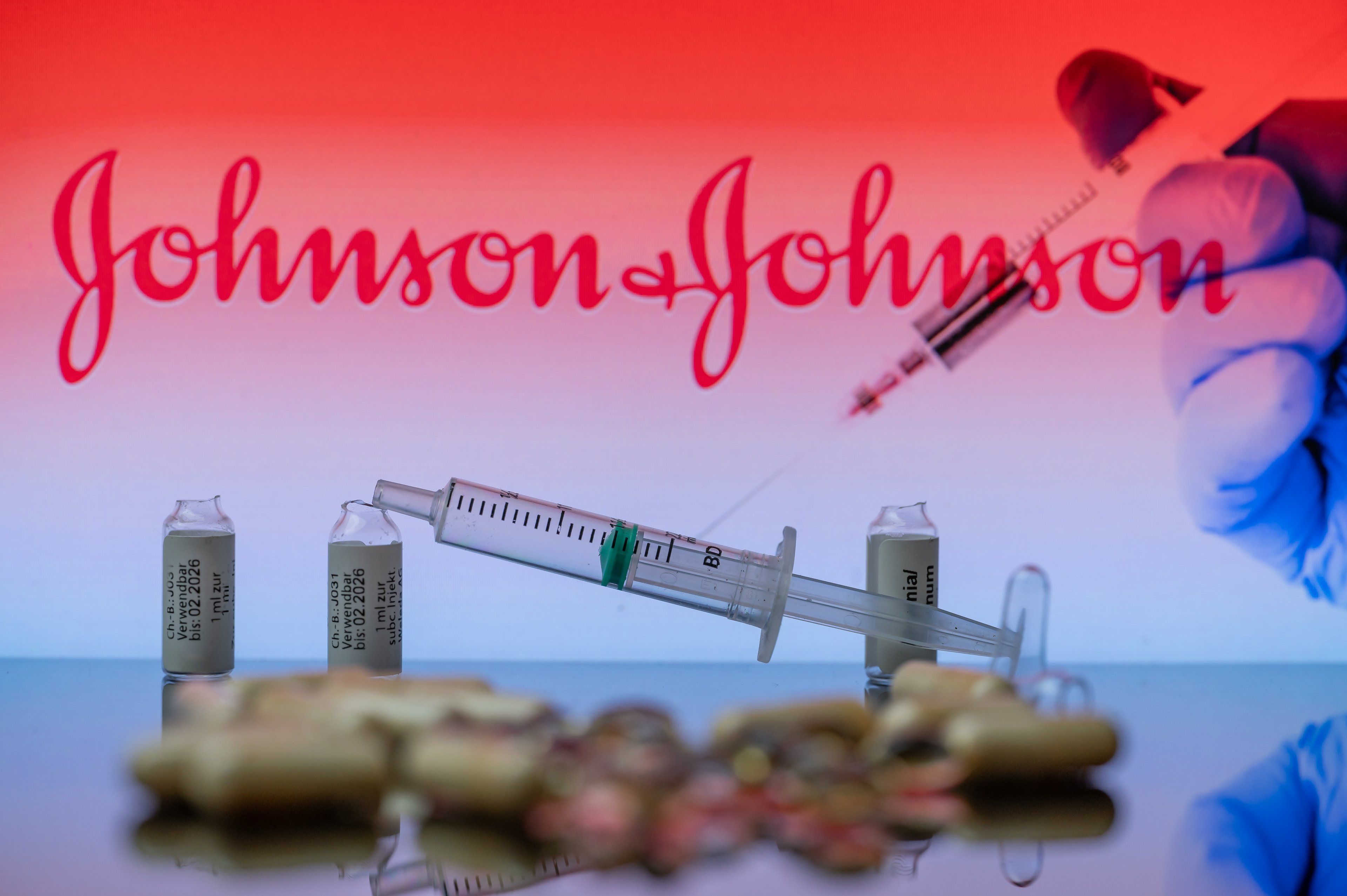Although we don't believe in timing the market or panicking over market movements, we do like to keep an eye on big changes -- just in case they're material to our investing thesis.
Good morning, fellow Foolish investors! Let's check in on four stocks -- Gilead Sciences (GILD +3.01%), Johnson & Johnson (JNJ 0.41%), Pharmacyclics (NASDAQ: PCYC), and AbbVie (ABBV 0.31%) -- which could loom large in health care headlines this morning.
Three cheers for Gilead Sciences
First up, we have three very positive developments for Gilead Sciences.
Gilead's long-awaited hepatitis C drug, Sovaldi (formerly known as sofosbuvir), was approved by the Food and Drug Administration last Friday. Sovaldi is considered a breakthrough drug because it is the first once-daily pill approved to treat certain types of hepatitis C without the use of interferon, an injected drug usually administered with other hepatitis C drugs which can cause flu-like symptoms.
However, only patients with genotypes 2 and 3 of the hepatitis C virus can take Sovaldi along with ribavirin, an older antiviral drug, without the additional use of interferon. Patients with genotype 1, the most common form of hepatitis C, and the rarer genotype 4 must take the treatment with both ribavirin and interferon. Nonetheless, Sovaldi represents a huge leap forward for hepatitis C treatments, and analysts believe that it could hit annual peak sales of $3.8 billion.
Meanwhile, Gilead also provided an update regarding idelalisib, a new treatment for chronic lymphocytic lymphoma (CLL) and indolent non-Hodgkin's lymphoma (iNHL). Gilead stated that during a phase 2 study for iNHL, patients achieved an overall response rate of 57% with a median duration of response of 12.5 months. Back in October, Gilead halted a phase 3 study of idelalisib for the treatment of CLL due to overwhelmingly positive results. If approved for both indications, idelalisib could generate annual peak sales of $500 million.
Gilead also announced positive interim results from a phase 2 study evaluating GS-9973, an investigational oral drug for the treatment of patients with relapsed or refractory blood disorders such as CLL and iNHL. Gilead stated that among patients with CLL given eight weeks of GS-9973 monotherapy, 97% experienced a reduction in the size of their lymph nodes.
These three developments all bode well for Gilead, which is looking for a future beyond HIV treatments when its patent for Viread, the core drug in its portfolio of combo drugs, expires in 2017.
Johnson & Johnson and Pharmacyclics assure investors Imbruvica is on the road to an approval for CLL
Johnson & Johnson and Pharmacyclics also announced some good news this weekend, stating that Imbruvica, its closely watched treatment for CLL and mantle cell lymphoma (MCL), was effective in treating CLL in a long-term (median follow-up period of 27 months) study of patients.
The FDA approved Imbruvica last month as a treatment for MCL, but some investors had expected it to be approved for CLL at the same time. Therefore, J&J and Pharmacyclics' recent announcement is definitely a positive indication that it could be approved for CLL as well. If approved for both, analysts believe that Imbruvica could eventually generate annual peak sales between $6 billion and $9 billion.
Sales of Imbruvica will be split evenly between J&J and Pharmacyclics. For J&J, it would mean another potential blockbuster to fill the gap left by Remicade -- the blockbuster arthritis drug that accounted for nearly a fourth of its pharmaceutical segment's revenue -- when its European patents start to expire in early 2015. For Pharmacyclics, which has no other marketed products, this could be its big chance to evolve from a speculative biotech into a fundamentally sound one.
AbbVie's leukemia drug shows extraordinary promise in a phase 1 trial
Last but not least, AbbVie's experimental leukemia drug, ABT-199, showed very positive results during a phase 1 trial involving 67 patients with CLL who had not undergone chemotherapy or relapsed from other treatments.
ABT-199 is a new type of drug that blocks BCL-2, a protein that helps cancer cells resist the body's natural ability to kill off defective and cancerous cells. AbbVie is currently partnered with Roche's (RHHBY +0.24%) Genentech unit in the drug's development.
On Sunday, AbbVie announced that 84% of the patients in its phase 1 trial showed at least a 50% reduction in signs of the disease and that 23% achieved complete remissions. Patients who failed to respond at all generally only lived an additional 12 to 18 months.
This is a key development for ABT-199, which was temporarily suspended back in February after the deaths of two patients. If approved, ABT-199 could possibly be expanded to treat other types of cancer, including lung, breast, and prostate cancers.
AbbVie is looking for ways to diversify its revenue away from its blockbuster arthritis treatment Humira, which accounts for more than half of its top line but will lose patent protection in the U.S. in December 2016.
AbbVie's most promising chance at growth beyond Humira is a new hepatitis C regimen that could be approved next year. However, experimental cancer treatments such as ABT-199 also represent tremendous growth opportunities for AbbVie farther down the road.









